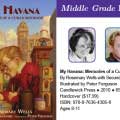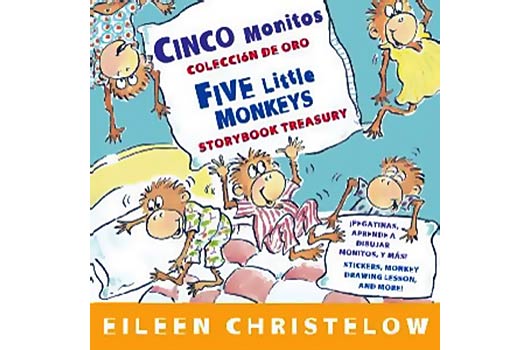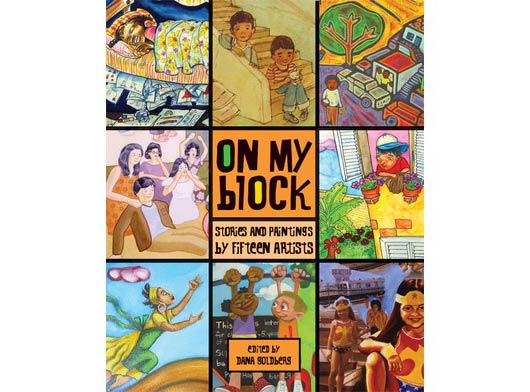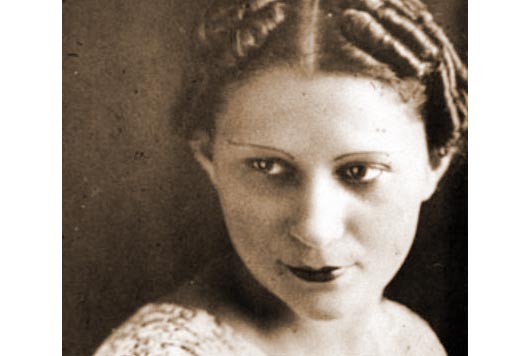
I am sitting in the North Charleston Coliseum in South Carolina ensconced in a piece of pure Americana. A CNN debate between the Republican presidential candidates is unfolding beneath a sea of cardboard red, white and blue stars and stripes.
“I favor English as the official language of government, and I think that creates a continuity,” Newt Gingrich says, punching away at his opponent before a roaring crowd of Southern Republicans.
There was continuity weeks later at the CNN debate in Jacksonville, Florida, where nearly a quarter of the population is Hispanic. “I also believe that in our schools, we should teach kids in English,” Mitt Romney says to thunderous applause.
What American—Latino or not—wouldn’t applaud for teaching kids to speak English in U.S. schools? I slouch into my seat and wait for the good part, when the sparks of partisanship flare up over the details of what “English Only” means. But, when THEY go mano-a-mano in the language wars, these guys have got nothing on the 40-inch, 35-pound adversary I fight each day.
“Mama, would you please speak English! We live in America,” 6-year-old Luna yells at the breakfast table. You see, while the broad national debate is about English Only, in my 1,000 square feet of America, it’s Spanish that’s causing all the stir.
Luna only spoke Spanish for her first few years, our feeble attempt to make her bilingual in a home with two parents who are fully bilingual. Like generations of Americans with roots in other countries, we thought it would be an asset for her to learn a second language. Then preschool introduced English, but who would push back against the cuteness of bilingual baby talk. By Kindergarten she had drawn the line in the sand. She wanted to speak only the language of her people—the other 5-year-olds in Room K210.
ENGLISH, SPANISH, SPANGLISH SPOKEN HERE
At first we pretended not to hear her and she’d switch back to Spanish. But every time we talked to other people in English, she would lose patience with us. Then we started to respond in Spanish to her questions in English, which led to dumb exchanges like this one: “Hey Mama, you dudes want to hang out at the park today?” (Just to give you a visual, she always puts her hands on her hips when she says “dudes.”) “Si mi amor,” this dude would respond. FOR AWHILE WE BECAME A SPANISH ECHO CHAMBER. IF SHE SAID “water” WE WOULD REPEAT “agua?” The next stage sent us South. Say Hola to Spanglish! “Yo quiero peanut butter sandwich en my lunchera, Mami.”
We laid down the law:
“Luna, hablame en español.”
“NO way. What’s with all the Spanish?”
“Es divino hablar ingles y español.”
“Great, so you speak both.”
“I do already. I want you to speak both.”
“Haha. See you’re speaking English.”
“Luna, por favor. Si hablas español vas a poder hablar con mas gente.”
“This is America. Gente should be speaking English.”
That settled it. I would become Mama Newt Gingrich. Our house was going Spanish Only. We would not be the parents paying somebody to teach our kid Spanish in high school. We would not be doing some Outward Bound summer trip to Costa Rica. BASTA! Not raising Hannah Montana after giving birth to Dora the Explorer.
My Latina friends advised: “Just keep talking Spanish to her. Don’t make it a fight.” But two secretly admitted to shipping theirs off to grandparents in the Dominican Republic. My own brother revealed that he threatened my niece with a Panamanian boarding school. We turned our attention to our beloved Rosanna, Luna’s babysitter who speaks very little English. Not a word of English with Luna, we declare. Within a week Luna claims to be giving Rosanna “English lessons.” My mother comes to visit and I seize her as an ally. THAT DAY I FIND MY MOTHER singing LUNA Barbie songs in English on her pink plastic Karaoke machine. I blame my partner who is from Colombia and has an accent. “It’s your native tongue,” I say. “Make her talk it!” Luna begins mocking her accent. My partner put her hands on her own hips. So much for that.
We need government intervention. This whole English Only debate has sidestepped the problem bedeviling parents in our nation of immigrants—how do we get our freaking kids to SPEAK the family’s native tongue? I waltz into her public school and ask about Spanish class. They offer French in afterschool! Ok, French. Whatever. “But no one signed up.” Ugh. This isn’t just about bilingualism; American culture reveres its roots! We are the gorgeous mosaic! A beautiful quilt! Ellis Island, United Nations. The endless St. Patrick’s Day parade. We got more taquerias than Tijuana; can’t we teach some foreign language to our kids? At the next debate the word English gets repeated 11 times in a state where a 20% of the population speaks Spanish at home. Clearly, I’m on my own with this one.
SO MUCH MORE THAN A LANGUAGE
I pick up a t-shirt at an airport that says “Se Habla Español” and toss it among her clothes. She barely notices. My cousins visit from Peru; their kids speak perfect English. We make a playdate with an anglo kid who is fast becoming fluent. We go to family parties and everyone is joking around in Spanish, but her. I feel my family history slipping away. This is about so much more than language.
The first signs I get that this is turning around come when we travel to visit family in Puerto Rico and Colombia, where my partner was born. Suddenly, Spanish is in the air. Luna shyly chats up her cousins. She orders papas fritas (French fries). She runs on the beach yelling “conchas.Conchas (shells).” When we get back, I sneak in at night while Rosanna is getting her ready for bed. She is chattering in español. Rosanna grins as I write her weekly check.
But it doesn’t really come together until I get the call. This time I’m on the road covering the Republican primary. “Hola, Mama,” her tiny voice says into my cell phone. “Cuando vienes? Yo te extraño?”
“I’ll be home soon. I miss you too,” I say in English, deciding not to press my luck.
“Te quiero mas que las estrellas y la luna, Mama.”
“You love me more than the stars and moon?! Me too, amor.”
“Can you bring me something from your trip, Mama?”
AY YAY YAY!!!
A contributor to Mamiverse, Rose Arce is a senior producer with CNN. She is currently working for CNN’s “Starting Point” during the Republican presidential primaries. For the full version of this article, go to CNN.com.
[Mamiverse’s Bilingual Plus is an online channel devoted to bringing parents and educators the bilingual learning tools they need in the form of digital picture books, sing-alongs, and free curriculum-based family activities.]












